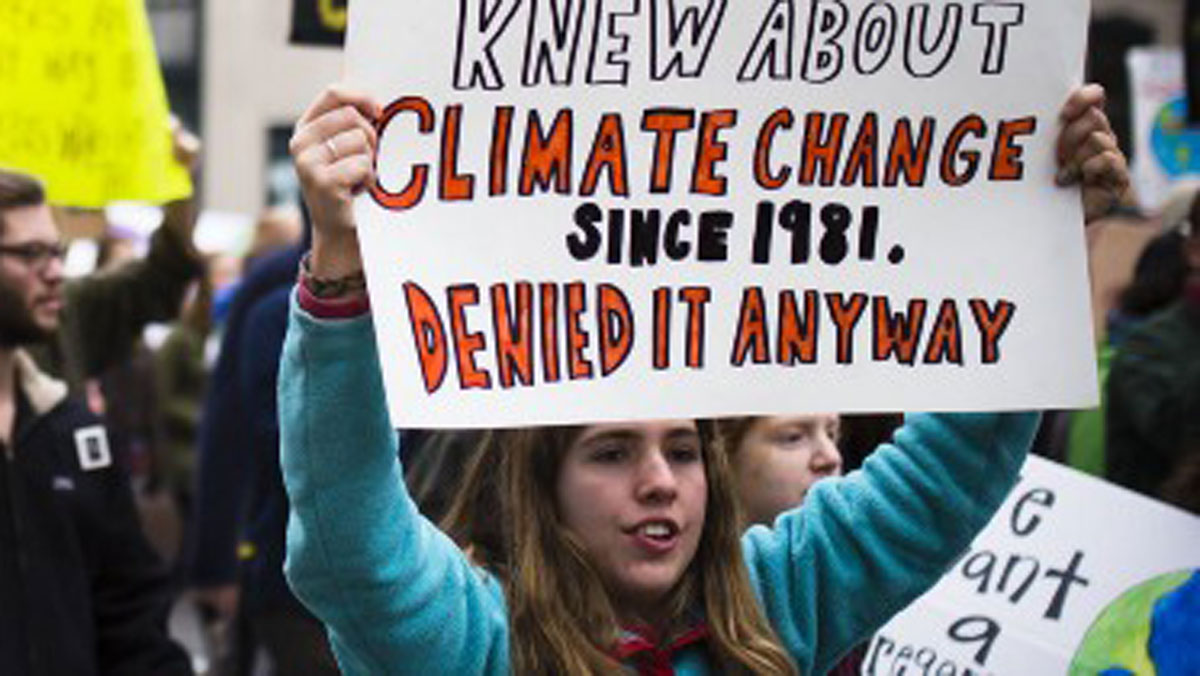Last week, U.S. Senator Sheldon Whitehouse (D-Rhode Island) took to the Senate floor to connect that spending to the industry’s ultimate goal: blocking any meaningful action by Congress that would cut into the fossil fuel industry’s profits and hold them accountable for their central role in the climate crisis.
In a barnburner of a speech, Whitehouse lambasted the decades-long “deliberate campaign of lies propaganda, and political pressure,” by Big Oil companies, whom he called the “biggest, most powerful, most motivated force preventing climate action.”
Through front groups, lobbying, and ungodly amounts of advertising, ExxonMobil and other fossil fuel companies have spent decades lying to the public about the conclusions reached by their own climate scientists: that the burning of fossil fuels would warm the planet and create the sea-level rise, floods, wildfires, heatwaves, and other climate disasters now befalling communities.
“They predicted the hotter temperatures,” Whitehouse explained. “They predicted the melting ice sheets. They predicted the rising seas that Louisiana and Rhode Island are so menaced by. They predicted the massive damage that climate change would cause. Exxon knew its business was ultimately toxic to our planet.”
Whitehouse highlighted a recent study that documented how the five biggest U.S. oil companies — ExxonMobil, Shell, ChevronTexaco, BP, and ConocoPhillips — regularly spend hundreds of millions of dollars on PR efforts, and how that spending soars whenever there is a greater likelihood of Congressional action on climate change, such as happened in 2010 when the companies spent a combined $315 million.
“That’s no coincidence,” Whitehouse explained. “Here in this building something occurred that the fossil fuel industry saw as a threat … PR spending helped the industry block serious climate legislation like Waxman-Markey and obstruct action to solve the climate crisis.”
As we and others have found, bipartisan majorities of Americans support holding fossil fuel companies for damages caused by climate change, and that support only grows when they learn about the industry’s deception, which Whitehouse compared to the coordinated racketeering campaigns of tobacco companies.
As more and more voters understand the urgency of the climate crisis, the real question is whether more members of Congress will have the courage to take on the fossil fuel industry and end their stranglehold on American politics.
Whitehouse implored his colleagues to take action. “We have the power to shake off the malign influence of a desperate and greedy industry and tackle the defining issue of our time,” he said.
Watch Sen. Whitehouse’s full remarks here.
